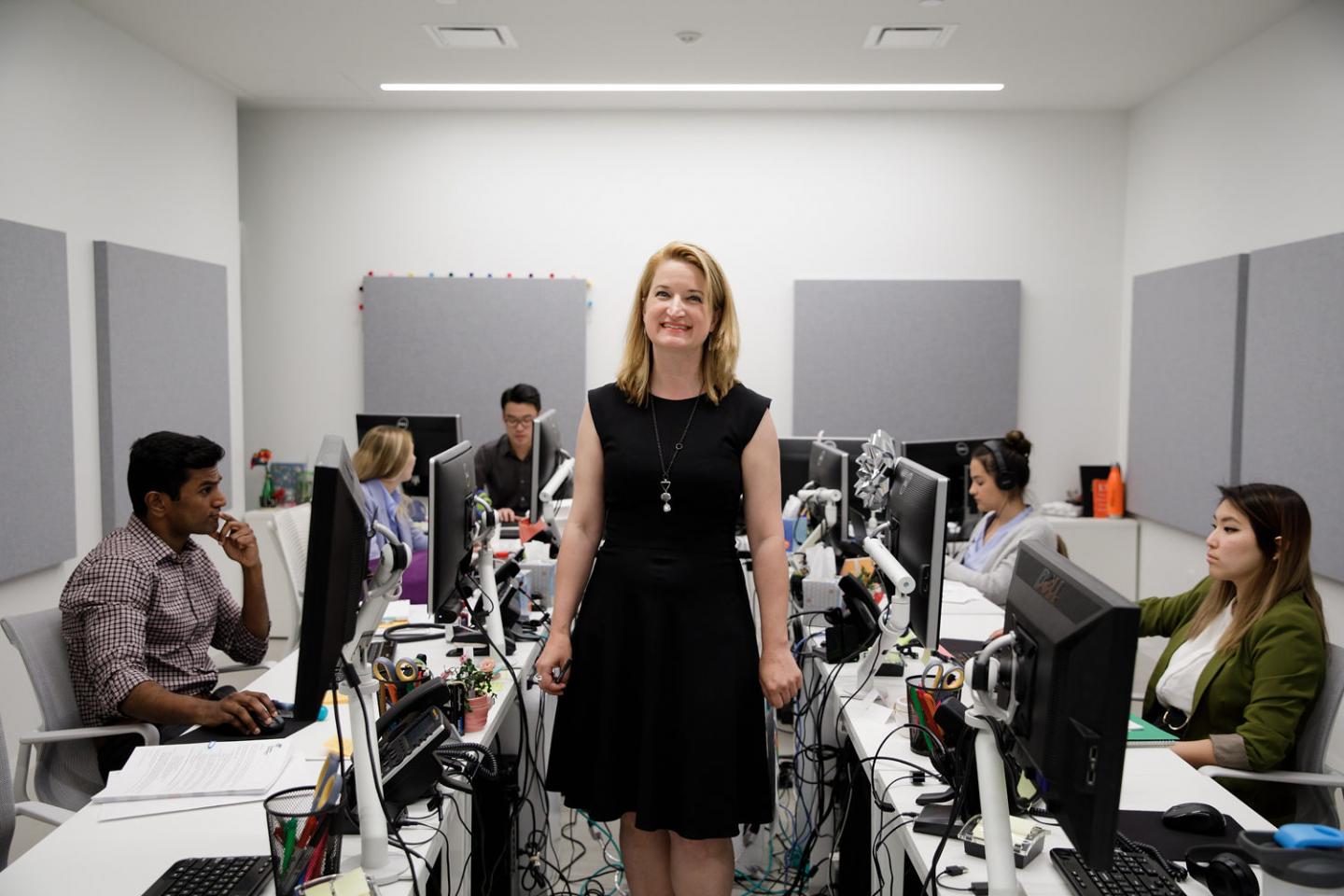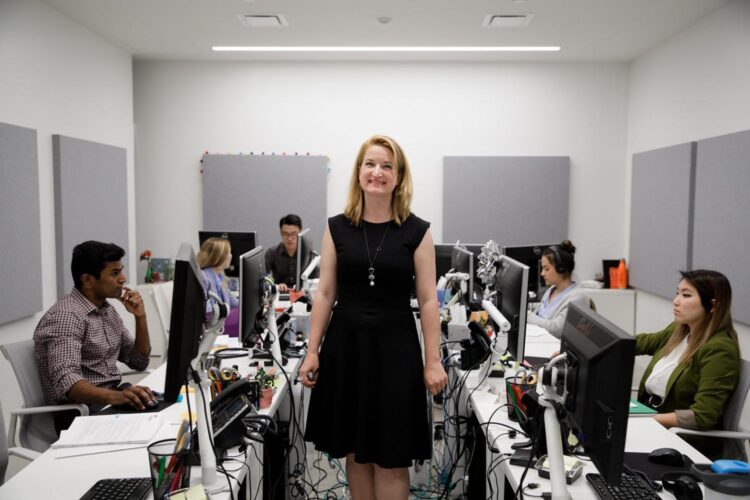New call center to answer questions, educate, and support the dialysis and transplant community.

Credit: Coral Von Zumwalt
The Transplant Research and Education Center (TREC), housed at the Terasaki Research Institute for Biomedical Innovation (TIBI), launched the COVID-19 Kidney / Transplant Listening & Resource Center (KTLRC) on June 17, 2020. The KTLRC is a vital new service created in direct response to the unique and unmet needs of the dialysis and organ transplant community during the COVID-19 Pandemic. The KTLRC is a toll-free call center that allows patients, their loved ones, and caregivers to connect with our experienced education team to share their questions, concerns, and receive answers, education, and referrals for additional resources.
The KTLRC can be reached at:
1-800-830-0484
[email protected]
Dialysis patients and the transplant community are vulnerable populations because they have chronic diseases, comorbidities, and immunosuppressed statuses that make them more susceptible to COVID-19. These patients face never-before-encountered challenges and risks now associated with preventing or being treated for COVID-19 and following their existing care plans, including attending medical visits, routine dialysis appointments, and transplant evaluation.
Patients and caregivers from anywhere around the country can call the KTLRC. Calls will be answered by staff trained in motivational interviewing and empathic communication; they are ready to answer questions about COVID-19 and transplant. They will also provide educational materials and referrals to additional resources, including mental health and financial resources. The KTLRC is staffed between the hours of 7am and 6pm PST Monday – Friday. Staff members answer all voicemails left at the Center during the next business day.
Lizeth Ambriz, manager of the KTLRC, said of the center, “It provides patients with an opportunity to be heard in a time where such opportunities may be limited due to social distancing or other barriers. It also provides them with a centralized location to receive education tailored to their experiences as kidney patients or caregivers of kidney patients.”
All patients who call will be provided with a comprehensive educational guide created by TREC, “Doing everything you can during COVID-19: A Kidney & Transplant Patient Guide,” which is available on our website at exploretransplant.org/covid-19/. We have also partnered with the Connie Frank Kidney Transplant Center at UCLA to ensure that all UCLA kidney transplant patients are invited to call the Listening Center to have their questions answered, share their experiences, and receive support.
TREC is led by Amy Waterman, Deputy Director at TIBI, and a leading expert in transplant research and education. Dr. Waterman’s research focuses on ways to increase public awareness of kidney disease and its treatment options, reduce barriers to living donation, and reduce the racial and socio-economic disparities in transplant access. TREC and TIBI share a joint mission to invent and foster practical solutions that restores or enhances the health of individuals. When the COVID-19 pandemic began, TREC received calls and emails from patients and living donors who were concerned that the information they needed was unavailable. Recognizing the need for better and personalized resources, TREC worked directly with kidney patients and living donors, as well as clinical experts at UCLA, to create the educational guide and the KTLRC.
The KTLRC is part of a UCLA IRB-approved study IRB#20-000863 that will support the continued improvement of educational and telemedicine resources for kidney and transplant by making it responsive to the needs and concerns that they share. Based on calls to the KTLRC, TREC will determine what common questions, fears, and challenges that dialysis and transplant patients and their caregivers are having during the time of COVID-19, as well as what types of assistance is most helpful, and how they would prefer educational information to be optimally delivered.
The COVID-19 Kidney / Transplant Listening & Resource Center (KTLRC) provides patients with access to expert support, someone to listen meaningfully to their experiences navigating care at this time, answers to their unique medical concerns, and referral to a comprehensive educational guide, including mental health and financial resources.
###
PRESS CONTACT
Stewart Han, [email protected], +1 818-836-4393
Terasaki Institute for Biomedical Innovation
The Terasaki Institute for Biomedical Innovation (terasaki.org) is a non-profit research organization that invents and fosters practical solutions that restore or enhance the health of individuals. Research at the Terasaki Institute leverages scientific advancements that enable an understanding of what makes each person unique, from the macroscale of human tissues down to the microscale of genes, to create technological solutions for some of the most pressing medical problems of our time. We use innovative technology platforms to study human disease on the level of individual patients by incorporating advanced computational and tissue-engineering methods. Findings yielded by these studies are translated by our research teams into tailored diagnostic and therapeutic approaches encompassing personalized materials, cells and implants with unique potential and broad applicability to a variety of diseases, disorders and injuries.
The Institute is made possible through an endowment from the late Dr. Paul I. Terasaki, a pioneer in the field of organ transplant technology.
Media Contact
Stewart Han
[email protected]





